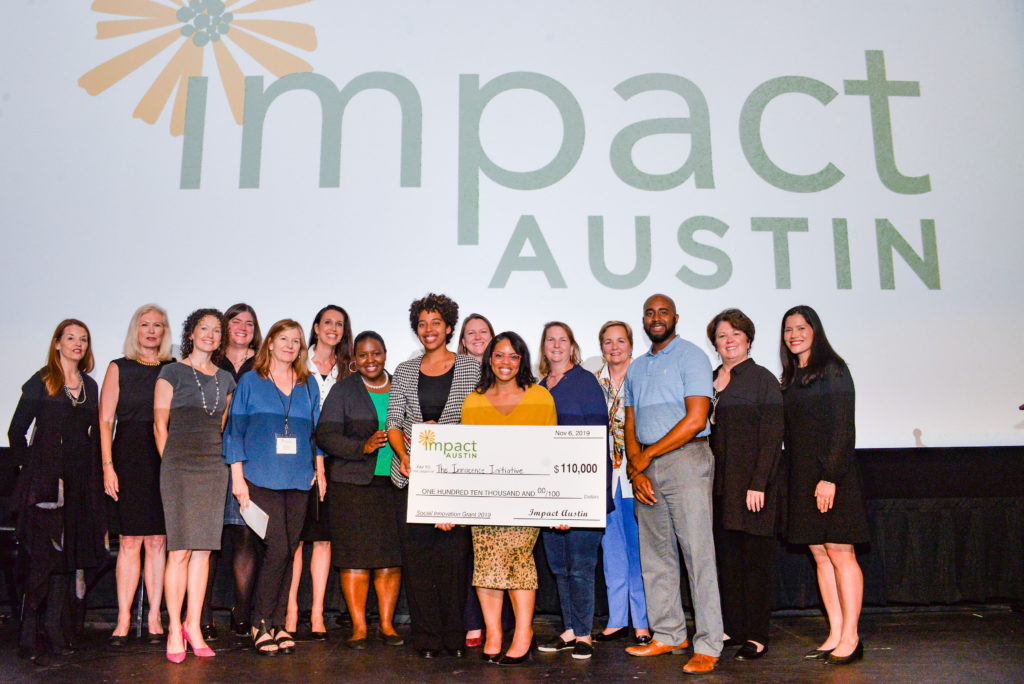Girls of color are often viewed as more adult-like and less vulnerable. Measure launched The Innocence Initiative to fight this adultification bias with data.
By Phaedra Rogers

If two young girls, one black and one white, are in a vulnerable situation, data shows the white girl will receive more attention and defense. According to a recent study conducted by Georgetown Law, adultification bias explains the discrepancies between how black and white girls of the same age are treated, with negative bias stacked against black girls. The study found girls of color are often viewed as more adult-like and less vulnerable, especially between the ages of 5 and 14. The study confirmed what communities of color have long experienced; now, they have the data and language to statistically prove it.
Growing up, Meme Styles experienced the effects of racial bias at a young age. As the president and founder of Measure, a data-driven advocacy organization seeking to eliminate social inequality, she’s on a mission to prevent more children from having the same childhood memories.
“Growing up, I felt the sting of being treated differently than my white peers,” Styles says. “Because of that, it was clear that I needed to protect my children once they were born. But, regardless of my efforts at home, they still had to endure whatever society doled out once they left the house.”
Styles’ fierce mothering instincts, coupled with her bravado and intelligence, are transforming how the Austin community understands racial discrimination.
“In a nutshell, adultification bias is the perception that black girls
are seen as less innocent, therefore needing less protection than their white peers,” Styles says. “It also means that black girls are more likely to be treated as a threat to authority if they defend their opinions or even their own bodies.”
Styles is working to expose and eradicate adultification bias through hard numbers, moving the needle of change by delving into factual information.
“Numbers are a common language that everyone understands. When numbers tell a story that exposes unfairness—whether in health care, schools or the justice system—then the community can work together for change,” she says. “Otherwise, we’re simply recirculating our frustration without devising a plan for actionable change.”
In Travis County, Associate Court Judge Aurora Martinez Jones sees a widely uneven number of black girls, many placed in foster care, who receive punishment in the judicial system.
“The current foster-care system was not created with children of color in mind. We need to rethink how we care for them and reimagine a system that takes their individual and cultural needs into consideration,” Jones says. “Black girls grow up to become black women who will likely become mothers. We improve an entire family cycle if we deal with adultification bias against black girls now.”
The Innocence Initiative—a collaboration between Measure, the Girls Scouts of Central Texas, the Lone Star Justice Alliance, Hearts 2 Heal, and the Community Advocacy and Healing Project— seeks to change the status quo. It’s an overarching initiative aimed at protecting and advancing more than 35,000 girls of color by including them in organizations like Girl Scouts, preparing them for leadership roles and training defense attorneys to ensure fair representation in schools and the justice system.
Impact Austin, a women’s collective-giving organization, awarded the collaboration a $110,00 grant this past fall, propelling the advancement
of young black girls in Central Texas. The inaugural Social Innovation Grant was also the first time Impact Austin awarded a collaborative effort a grant.
With the hashtag #ourgirlsneedus, The Innocence Initiative’s rallying cry calls out the urgency of its task and the communal nature of the solution.
“It’s my hope that people will realize this is a multicultural problem,” Styles says. “And it’ll take people from every race and background to eliminate it.”
READ MORE FROM THE APRIL ISSUE



